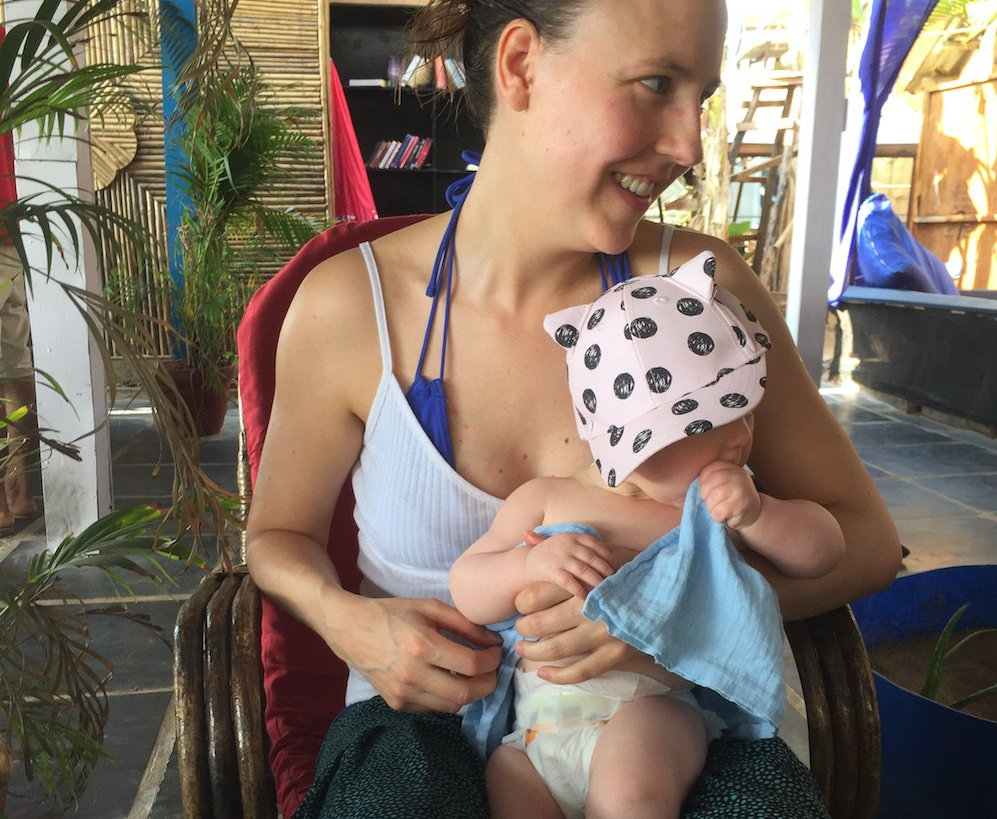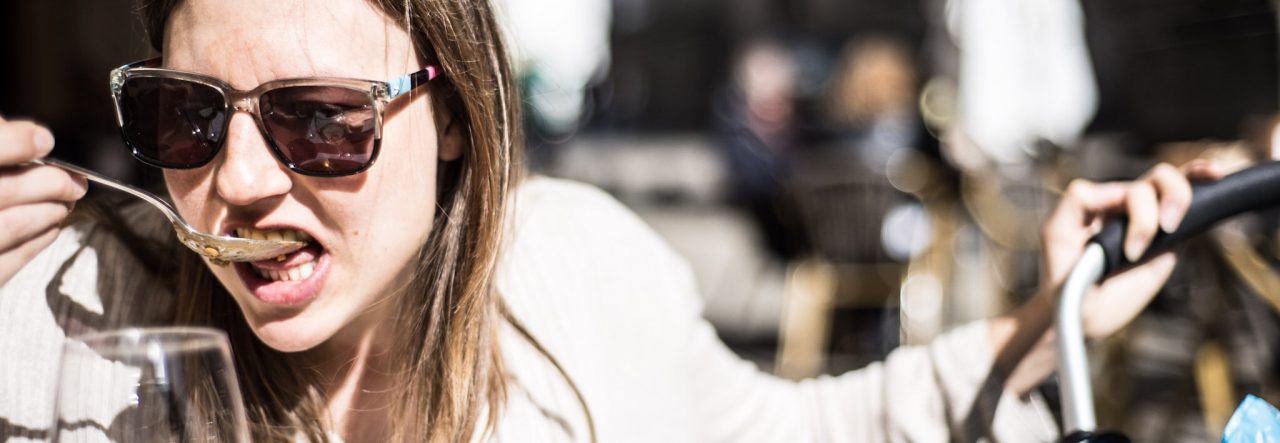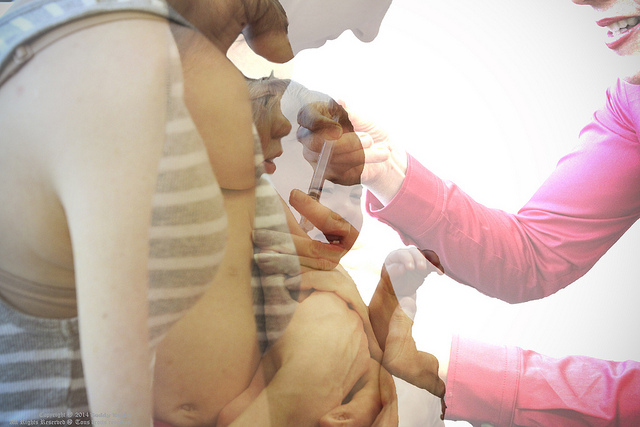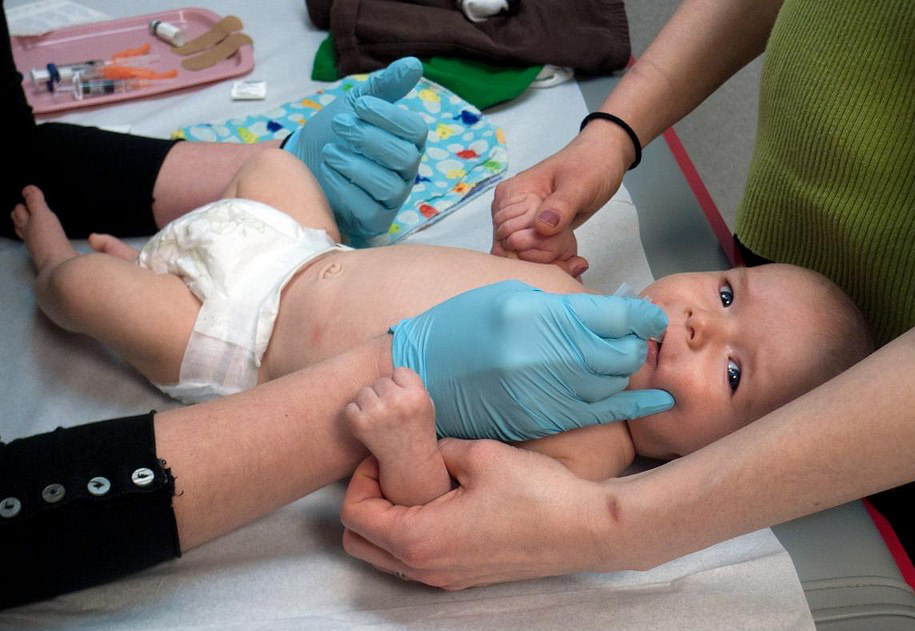Mosquito and other insect bites are no fun at any age but particularly galling when the person who’s been bitten is too young to understand that scratching will only make the discomfort worse. When you take into account the fact that mosquitos in some parts of the world can carry dangerous diseases like malaria, zika and dengue fever, it’s important to get informed and organised ahead of time to stop your baby getting munched.
How to stop your child being bitten by mosquitos

Mosquitos lay their eggs in standing water, so avoid hanging out by lakes or ponds, or even puddles after a storm. If your accommodation is on the budget end of the scale it’s worth doing some additional research as to its surroundings – when we took the baby girl to Goa when she was four months old I very nearly booked us into a place where the mossies would have us eaten us alive. It was only by doing some digging that I discovered the proximity of the huts to what the management called a stream but was in effect a swamp. Mosquitos and other flying insects don’t like altitude, so they shouldn’t be an issue in any destination over 2,000m up.
There are thousands of species of mosquitos, with some active during the day, some at night, some at dawn, etc, etc, but it’s fair to say that you’re most likely to get bitten at dusk. Keeping your little one covered up is the most effective way of stopping her from being munched: loose-fitting, full-length sleeves and trousers, the thicker the material the better, as the little bastards can bite through thin, tightly fitting fabric.
You can buy mosquito nets to fit around most cots – and prams and pushchairs for when you want to be and about – but more convenient is an integrated product like the NSA UK pop-up tent/travel cot. Nets treated with insecticide are more effective than those without.
Covering up isn’t necessarily the most attractive option in hot destinations, and you can’t keep a child under a mosquito net 24/7 – which is where insect repellent comes in. DEET-based products are recommended by the National Health Service for everyone over the age of 2 months – concentrations of between 20% and 30% are best for children (the higher the concentration, the longer your little one is protected). While safe for use, DEET is a strong chemical and shouldn’t be breathed in or applied near the mouth or eyes. If you can be very confident that there are no mosquitos where your baby is sleeping, it’s a good idea to wash the repellent off before bed.
Contrary to popular belief, citronella and tea tree oil have little to no repellent properties, so don’t rely on them if you don’t want to get bitten.
Treatment of bites

Cold compresses can help to calm itching from bites, and you should trim your little one’s nails to limit the damage done by scratching. If your baby is in real discomfort, you can give her infant paracetamol. For very severe reactions to bites, a doctor or pharmacist will be able to offer advice or prescribe something to calm the symptoms (most over-the-counter insect bite relief creams are not recommended for children under the age of three).
Malaria
Malaria is even more dangerous in babies and young children than it in adults so it’s important that you take steps to avoid it. That means everything already covered in this post, but it might also mean antimalarial medication, depending on your destination, the age and weight of your child (not all medications are suitable for young children), and what you’ll be getting up to on your trip. Make an appointment with your GP or practice nurse six to eight weeks before you travel to discuss your options.


